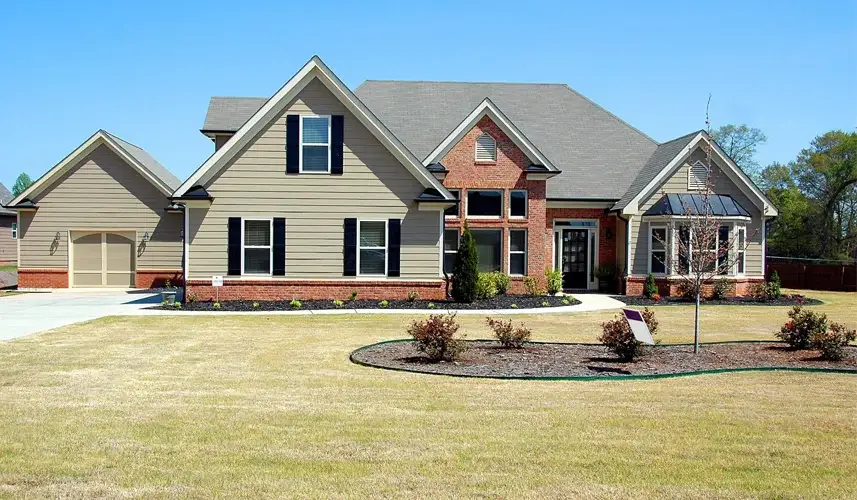
Is it better financially to rent or buy a house? This question dominates real estate decisions and can affect your financial future. As an expert, I’m here to navigate this intricate terrain with you. I’m Kim Wirtz, your dedicated guide through the complexities of real estate. Whether you’re a first-time buyer or a seasoned investor, I’m committed to providing the support and expertise you need to make informed decisions.
Visit my website to learn how I approach real estate. There, you’ll find useful resources, client testimonials, and essential solutions to help you along your journey. Ready to take the next step? Contact me at (708) 516-3050, and let’s embark on this journey together.
When deciding whether to rent or buy a house, there are many things to think about, such as the financial implications, personal preferences, and long-term goals. People need to weigh the pros and cons of owning a home, like building equity and being stable, against the advantages of renting, like being able to change plans more easily and paying less at first. To answer the question, “Is it better financially to rent or buy a house?” one must carefully look at their current financial situation and their goals for the future. Only after that can they make a decision that fits their needs and circumstances.
Renting provides flexibility and freedom, allowing people to avoid the long-term commitment of homeownership while exploring various living situations. However, it has the potential drawback of limited stability and the inability to accumulate equity in a property.
Renting has many advantages, one of which is flexibility. Renters have the freedom to explore different neighborhoods or cities without the hassle of selling a property because there is no long-term mortgage commitment. This flexibility may be especially appealing to people in transitional stages of their lives, such as young professionals or those who are unsure of their long-term plans. However, it is critical to consider the potential drawbacks of renting, such as the lack of stability that comes with constant movement and the restrictions on customization and personalization.
From a financial perspective, renting often comes with lower initial costs compared to buying a house. Renters are typically responsible for a security deposit and monthly rent payments, with little to no additional financial obligations. Additionally, maintenance and repair costs are typically the responsibility of the landlord, relieving renters of the financial burden of unexpected home repairs. However, it’s important to recognize that renting does not offer the opportunity to build equity or benefit from potential property appreciation.
Buying a home allows you to build equity and make a long-term investment while also providing stability and customization options. However, it entails financial obligations such as property taxes, maintenance fees, and market fluctuations.
One of the most significant advantages of purchasing a home is the ability to accumulate equity and make a long-term investment. Unlike renting, where monthly payments go to the landlord, homeownership allows people to build wealth through property appreciation and equity accumulation. Also, owning a home provides a sense of stability and security for the future, allowing homeowners to fully customize and personalize their living space. However, it is critical to understand the financial obligations associated with homeownership, such as property taxes, maintenance costs, and potential market fluctuations.
From a financial standpoint, buying a house can offer several benefits over renting. Homeownership provides potential tax benefits, including deductions for mortgage interest and property taxes, which can help offset some of the costs associated with owning a home. Additionally, homeowners have the opportunity to build long-term savings and wealth through property appreciation and equity buildup. While the upfront costs of buying a house may be higher than renting, the long-term financial benefits can often outweigh these initial expenses.

Use rent vs. buy calculators to compare the financial costs of renting versus buying a house over time. Even though renting is cheaper and more flexible, buying can provide long-term financial benefits like equity and tax deductions.
When comparing the financial aspects of renting vs. buying a house, it’s essential to analyze the costs over time. Renters may benefit from lower initial costs and fewer financial obligations, but homeownership offers the potential for long-term financial stability and wealth accumulation. By considering factors such as rent vs. mortgage payments, interest rates, and inflation, individuals can make an informed decision that aligns with their financial goals and circumstances.
A rent vs. buy calculator is a useful tool for comparing the financial implications of renting versus purchasing a home. These online tools allow people to enter various financial factors, such as rent prices, mortgage rates, and potential investment returns, to see which option is more financially beneficial. Individuals can use these calculators to make decisions that are in line with their long-term financial goals and circumstances.
Buying a home can be helpful because it allows you to build equity, stability, and customization options that renting does not provide. However, when making this decision, financial responsibilities, and market fluctuations must be considered.
While renting offers flexibility and freedom, homeownership provides a sense of stability and security for the future. Owning a home allows individuals to put down roots in a community, customize their living space to their preferences, and build equity over time. Additionally, homeownership can offer protection against rising rental prices, as mortgage payments are typically fixed over the life of the loan. For individuals looking to establish long-term roots and build wealth, buying a house may be the better option.
From a financial perspective, buying a house can offer several advantages over renting. Homeownership allows individuals to build equity and accumulate wealth through property appreciation and equity buildup. Additionally, homeowners may benefit from potential tax deductions, including deductions for mortgage interest and property taxes. While the upfront costs of buying a house may be higher than renting, the long-term financial benefits can often outweigh these initial expenses, making buying a house a wise investment for the future.
Renting or buying a house is a big decision that requires careful consideration of your needs. Rentals offer flexibility and lower initial costs, but homeownership offers equity and financial stability. As a seasoned real estate expert, I’m here to guide you through this process and help you make the choice that best aligns with your goals.
Whether you’re looking for a home or investing, Kim Wirtz will help you navigate the real estate world. Contact me at (708) 516-3050 to begin your journey towards finding the perfect home or investment property.

Kim Wirtz
Real Estate Agent and Realtor – Contact Me
My success in real estate is attributed to experience, professionalism, and commitment to service in many areas throughout Northern Illinois. I have been a licensed REALTOR® since 1992. I possess an extensive knowledge of the many cities and towns I service. I share that knowledge with my clients in an effort to make their home buying or selling experience a comfortable one.
I take pride in my attention to detail and put all my efforts into understanding the needs of my clients. I constantly educate myself on the latest trends in the marketplace. It is my goal to extend the “royal treatment” to my clients all the time. Every telephone call or email received by me is returned in a very timely manner. I extend, prompt, courteous and professional service to all.
Buying or selling a home should be a memorable and pleasant experience. Real estate is one of the most exciting investments one can make. I promise to be here for all of my clients in any way possible in order to assure a very pleasant experience. I treat my clients as my friends.